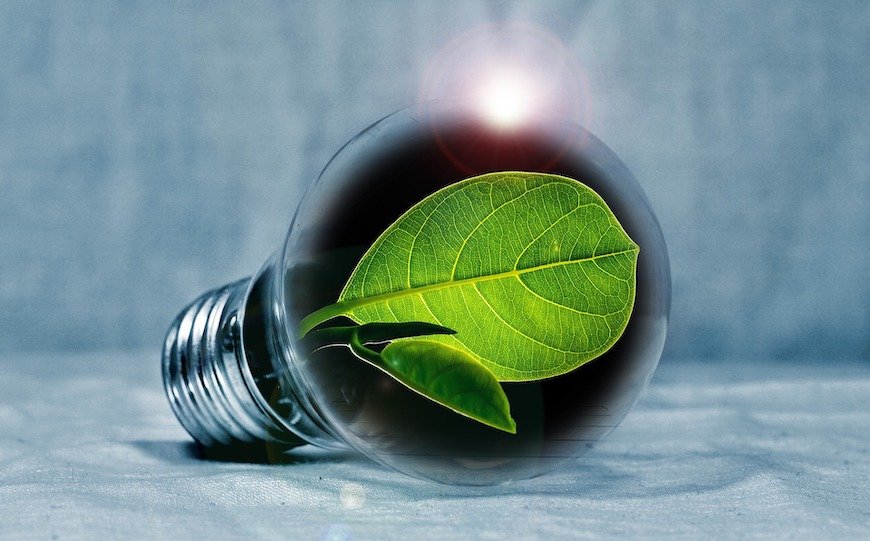You know those little cards you find in hotel rooms imploring you not to change your towels and sheets to save the planet? Well, it turns out they really do work. According to the AHLA (American Hotel and Lodging Association), a typical 300-room hotel can reduce its water usage by 51,840 gallons and detergent usage by 346 gallons yearly thanks to this program.
But, isn’t reusing linen just the tip of the fast-melting iceberg when it comes to green initiatives? Let’s take a look at other innovative trends for going and staying green.
So long to single-use plastics
It’s the last straw – literally – for many hotels. The plastic straw has caused quite the stir recently, spawning hashtags such as #Strawgate, #StrawWars, and #StopSucking. All jokes aside, plastic straws do suck for the environment, and it’s awesome to see hotels are doing their part to stop the madness by eliminating them, as well as other single-use plastic items.
EDITION Hotels, part of Marriott International, will go 100% plastic-free in 2019. With its #StayPlasticFree initiative, the luxury lifestyle brand hopes to inspire and influence other hotel brands to use non-plastic alternatives. What are those alternatives? In EDITION’s case, plastic water bottles were replaced with paper-made water cartons in rooms and fitness areas. All staff members were provided with reusable stainless steel bottles. And, guest toothbrushes are now made from bamboo instead of plastic!
The Carbon Disclosure Project has listed Melià Hotels International as one of the world’s leading companies in the fight against climate change. The Spanish brand will also eliminate single-use plastics from their hotels worldwide throughout 2019. In terms of innovation, Melià is using digital tools to help ensure their goal of using entirely renewable materials is met: its online procurement system has been set up to purchase only from vendors and suppliers who use alternative products.
Making a green splash
In 2018, Iberostar Group launched its Wave of Change initiative, which aims to make a lasting contribution to the conservation of the world’s oceans and seas. And the hotel chain has a great reason to pitch in – 80 percent of its hotels have seafront locations. Conceived in accordance with Goal 14 of the United Nations’ sustainable development goals, which advances the sustainable use and conservation of the oceans, seas, and marine resources, Wave of Change will have helped the company eliminate 200,000 kilos of plastic waste by the end of 2018. Iberostar has also invested in the research of coral reef restoration and will soon have a lab facility in their hotel in the Dominican Republic. Hosco salutes you, Iberostar!
?Top idea: New York’s 1 Hotel Central Park has put a 5-minute hourglass attached to a plank of reclaimed wood in each of its showers. This encourages guests to think of nature while reminding them to save it.
The hotel also has a green rate strategy called Give Green, Get Green. Guests are offered a $20 credit during their stay, and the hotel will donate whatever is left over at the end of their stay to the National Resources Defense Council, which helps to protect oceans.
Waste not, want not: reducing the food-waste footprint
Love decadent hotel buffets but hate to think of the waste they accumulate after the last guest has gone? You’re not alone. AccorHotels, which serves over 150 million meals each year worldwide, realized several years ago that the food production model across its 4,200 properties was not sustainable. In fact, it was wasting on average nearly a quarter of all purchased food.
With its Planet21 initiative, AccorHotels has pledged to reduce its overall food waste by 30 percent by 2020, to plant 1,000 urban vegetable gardens installed in hotels around the world and to ban the use of overfished species in its restaurants. The group has also partnered with Too Good To Go, the world’s largest online marketplace for surplus food. The app allows consumers to purchase meals at a reduced price.
Giving the green light to energy conservation
In 2017, the Radisson Blu Marseille won Carlson Rezidor’s annual Think Planet award for its commitment not only to water saving but to energy conservation as well. As GreenHotelier.org reports, the South of France property was a shining example of smart habits – reducing unnecessary lighting, switching to LED bulbs, and regulating heating and air conditioning. The result? The hotel had a 31% reduction in energy consumption over the five years preceding the award.
The Radisson Blu Frankfort is also cutting down on energy dependence by installing a fuel cell on site, effectively allowing the hotel to generate its own energy. Fuel cells have the advantage of producing heat and electricity at the same time, which provides a high level of efficiency and reduces emissions of harmful substances such as nitrous oxide and fine dust particles. The aim? The hotel will reduce CO2 emissions by about 600 tons each year.
What’s next?
As we’ve seen, hotels are now striving to appeal to more eco-savvy, conscientious guests and, to that end, are investing heavily in fantastic green initiatives. With their size and scope, these brands have the opportunity to make significant contributions to the fight against climate change and make the hospitality industry a clean, green leader.




